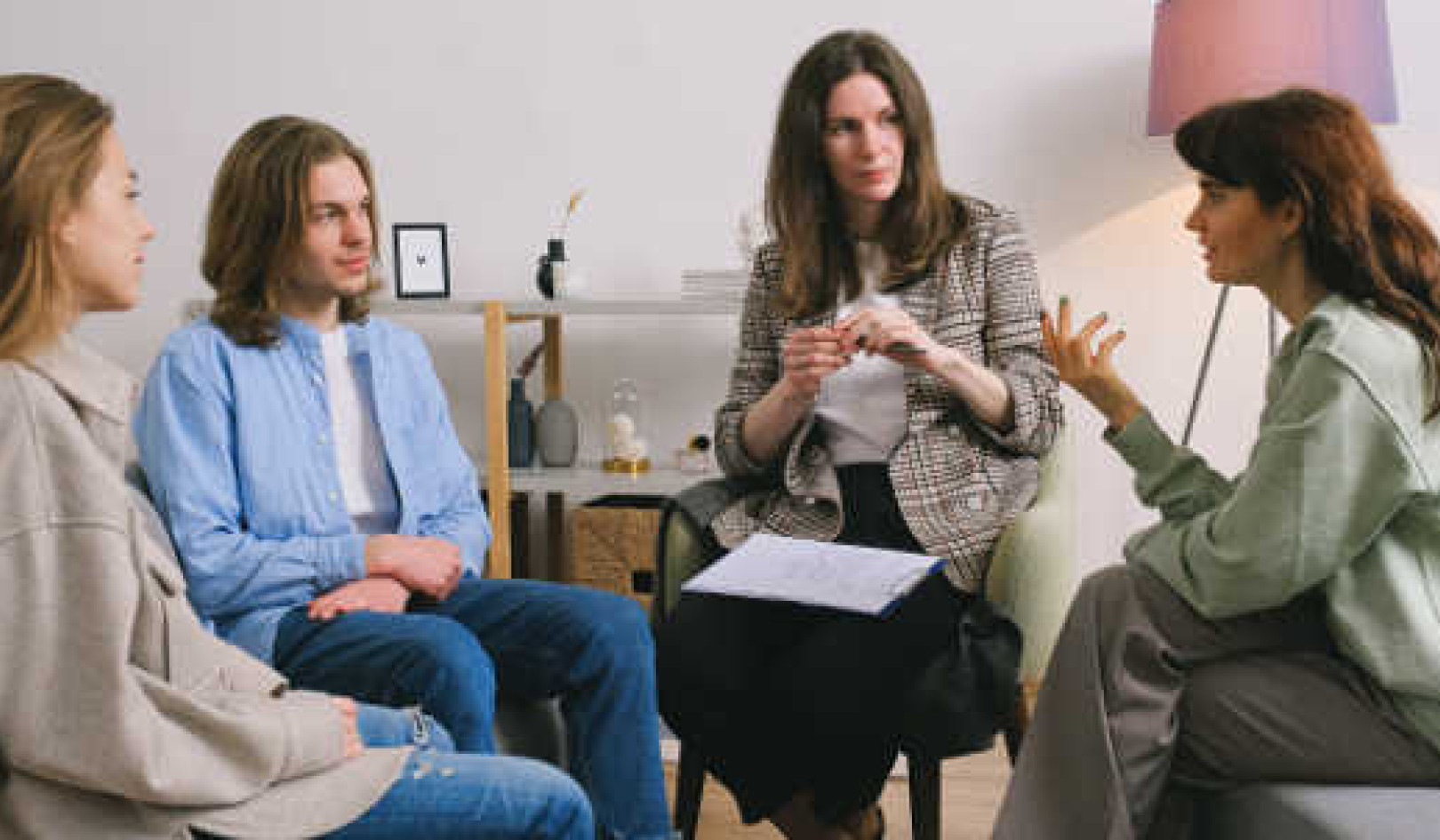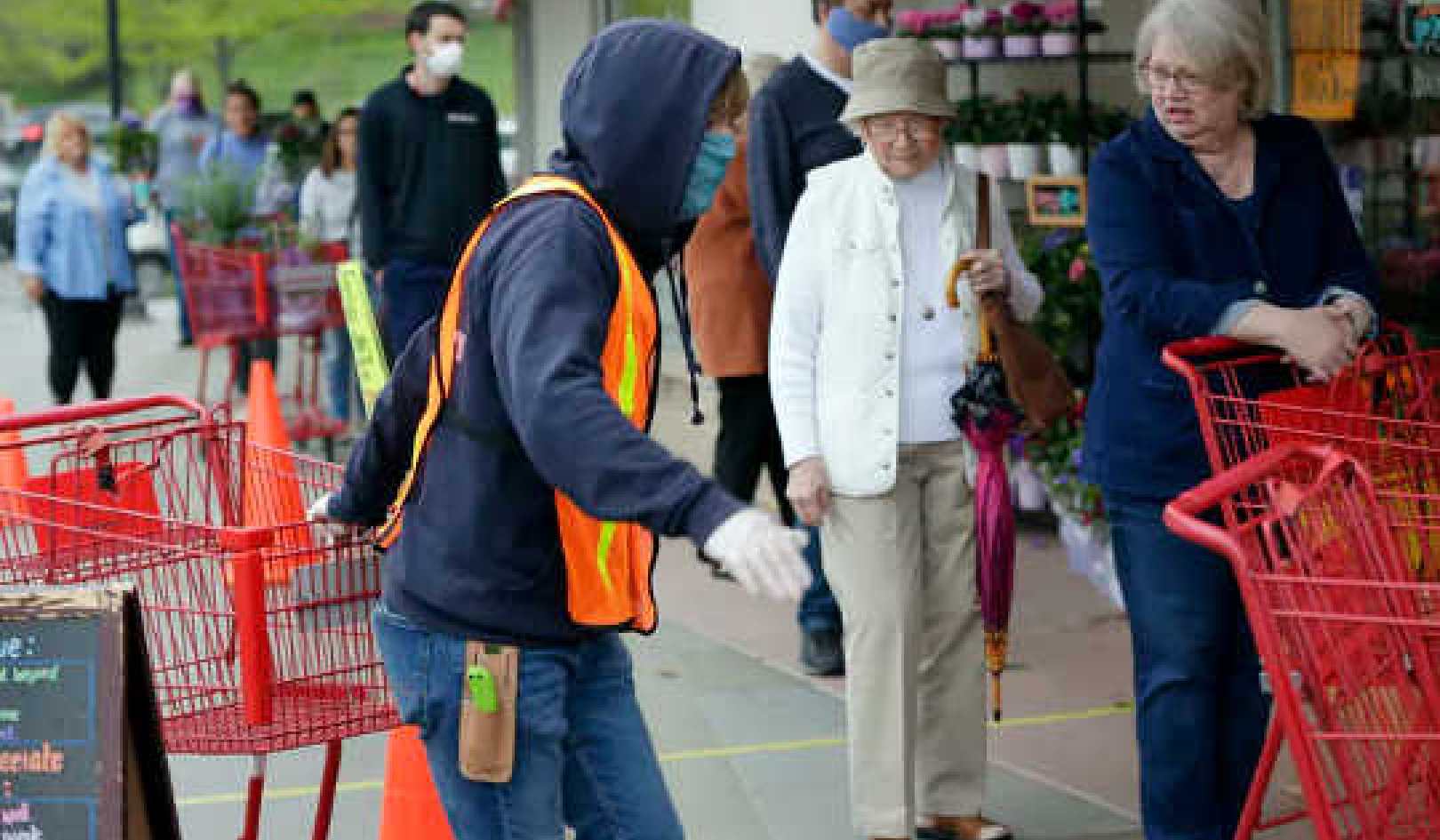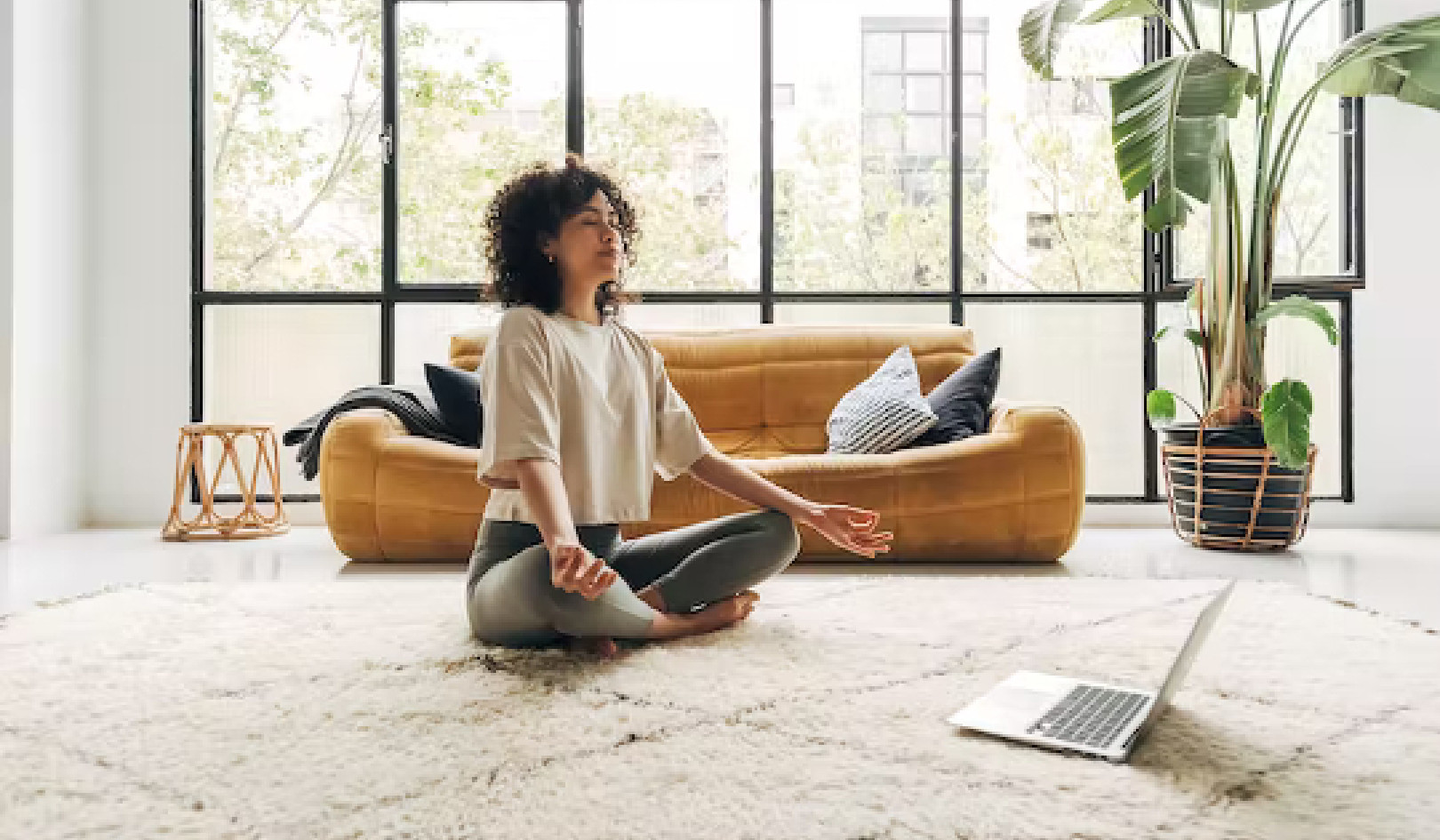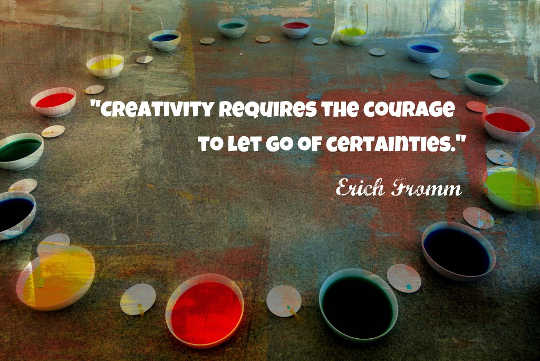
Beautiful old people are works of art."
— Eleanor Roosevelt
A svelte model, radiant in a single digit-size dress, smiled seductively from a page of a glossy women's magazine. I scrutinized her computer-enhanced complexion, jet-set tresses, and — I couldn't help but notice — a butt the size of a walnut. I admitted that she looked great. Bold type swirled about her, taunting me:
"Win the Makeover of Your Life!"
"Swing into Style with an Exciting New Wardrobe!"
"Shape up with Personalized Fitness Training!"
"Be the Woman You Always Wanted to Be!"
Gosh, I am the woman I want to be; at least I thought I was until I contemplated that perfectly coiffed, smugly confident image. Perhaps I could use a bit of pruning and shaping. Rock-hard abs and a set of Britney's showstoppers would top up the old bod just fine. Maybe I should "push 'em up and stick 'em out," get a nip and tuck, and strut, strut, strut my stuff? And that contest? Hmmm, I just might give it some thought.
With dimpling thighs and the beginning of a second chin, it's no surprise that my confidence quotient is a bit shaky. It takes tough self-talk and far too many sweaty hours at the gym to silence the inner critics and keep the spirit (and a whole lot more) from sagging. But hey, people at any age and size are keeping it together. For every 5'10" 110-pound mutant, there are legions of others slurping lattes (with extra cream, thank you very much). They're meeting life head-on. Right?
Well, sort of.
The Sabotage of Self-Doubt
While we might convince ourselves that we wouldn't change places with Britney, whispers of self-doubt wiggle into our souls, murmuring subtle messages that we're about as sexy as a hive of hostile bees. And self-doubt attacks more than the image we see in the mirror; it can sabotage our willingness to step out from the shadows and take on life. When our confidence is rattled we might resist moving to a new town, upgrading our education, or standing up to a bullying boss. While others may influence how we view ourselves, we're the ones who thrust our doubts deep into our souls.
Self-doubters tend to dismiss compliments and embrace criticisms. They focus — even highlight — their weaknesses, ensuring that others see their shortcomings as clearly as they do. Eleanor Roosevelt's clever one-liner "No one can make you feel inadequate without your permission" says it all.
Like dust bunnies on cleaning day, self-doubt can creep from out of nowhere to destroy our potential for rich and meaningful lives. Self-doubt creates life-limiting feelings of envy of those who succeed, sadness over our loss of fulfillment, and anxiety about tomorrow. It can cause us to retreat from life and replace its mystery and excitement with regrets and bitterness. We might hesitate to speak up if we are unfairly attacked, shy away from social occasions that could stimulate new friendships, or pass over promotion opportunities.
The Epidemic Feelings of Self-Doubt
Feelings of self-doubt are epidemic. It's a top-to-bottom, classless affliction. "Self-doubt is rampant in our culture, even among those who appear most successful," said psychologist Dr. Mary Louise Reilly. "I work with some top-notch professionals who appear to have it all together, yet don't see themselves as successful. They often feel like frauds, not worthy of what they've accomplished." She explains that we can't see our successes or even hear the accolades we justly deserve when disapproving internal voices shout them down.
Dr. Reilly spoke of a consultant who is a wizard at conjuring brilliant proposals yet quakes at presenting them and a silver-tongued salesperson who can sell bytes to Bill Gates yet shrinks at asking for a raise. "Their prospects are limited by inner voices that say, 'I can't do this,' instead of, 'This is a challenge I will conquer.''
When our minds are a flurry of nay-saying, self-doubt clutters our spirit, making it easy to disconnect from others and miss the splendors around us. That magical pause just before the sunsets and the welcoming promise of new opportunities can be lost under negative rumblings. Dr. Reilly said that we're often the architects of our own misery. "We have to stop heaping abuse on ourselves. We get up in the morning, look in the mirror, and start in. And this can go on all day."
Learning to Appreciate Ourselves
 Instead of focusing on our real or imagined defects, we need to appreciate ourselves, double chins and all. That might mean taking baby steps by paying attention to the verbal and non-verbal messages others give us. Highlight the positive. A smile, an invitation for coffee, a request for a recipe, or a call just to say hello confirm that we are valued.
Instead of focusing on our real or imagined defects, we need to appreciate ourselves, double chins and all. That might mean taking baby steps by paying attention to the verbal and non-verbal messages others give us. Highlight the positive. A smile, an invitation for coffee, a request for a recipe, or a call just to say hello confirm that we are valued.
While self-doubt is a tenacious monster, it withers in the presence of success. Janet is a paragon of confidence, but it didn't come easy. "Ten years ago I started life over from scratch in a new city with two kids I was raising by myself," she said. "The job market was tight, so I decided to go back to university and upgrade. I was scared to death. It had been ages since I had been a student. My mind reeled with reasons why I'd fail. I was terrified of falling flat on my face."
Although Janet had dabbled in community center courses while raising her children, this was a dive into the deep end. Research papers required pesky footnotes. There were presentations to make in front of students half her age, and the battle for marks with those agile, young minds was keen.
She also had to juggle part-time jobs and the children's needs with class schedules and study time. But she hung on — and finished. "I often felt defeated, like I'd never make it. But getting that degree was like doing the Boston Marathon. I was exhausted, but boy, did it feel good, not just because I had done it but because I had overcome an enormous inner hurdle. I can do anything now." Instead of letting self-doubt clutter her life, Janet has become one empowered, go-get-'em gal.
Jim, a whiz-bang political advisor, was born with the confidence Janet had earned, or so it seemed. Nothing could shake this young man. At just twenty-five years of age, he could saunter into a boardroom of strangers like it was a backyard barbecue. Yet when an offer to work for a high-profile government official landed in his lap, he hesitated. "I was truly flattered, but I had waves of uncertainty — huge ones. The man I was to work for was extremely bright, extremely capable, and unbelievably demanding. I was young for this sort of job and knew I could be setting myself up to bomb out."
Jim marched into the arena anyway. "After some hesitation I decided not to awfulize the situation. I wasn't going to let my insecurities control me. After all, I figured that life is about taking chances, so I convinced myself that this was an opportunity to transcend my limits." And he did. Today Jim advises top-level politicians.
Jim's gutsy attitude inspired me. I vowed to silence the interior voices that nattered on about aging faces and sagging body parts, and I decided to have it out with the woman in the mirror.
Reframing How We See Our Imperfections
I looked closely at my reflection. The face I saw reminded me of an ancient Chinese vase I had examined in a course I had taken. The vase's surface was cobwebbed with delicate, fine lines. A small chip marred the rim. "The chip says it has a history — it knows life," said our instructor, Patricia Kidd. "The tiny lines on the surface are known as crackle. These 'caresses of time' add to its beauty and," said Ms. Kidd, turning the vase lovingly, "they increase its value."
Oh, I liked that.
I peered deeper into the mirror, scrutinizing the crackle creeping across my face — my very own "caress of time." Beautiful? Well, I'm not sure about that. But Ms. Kidd's words made me realize how vital it is to reframe how we see our imperfections — inner ones as well as those in the mirror — and question the standards that measure personal worth, success, and yes, even beauty. Like that little vase, perhaps we need to shift from judgment to acceptance — of others and ourselves — and let go of the mental and soul-shattering clutter that self-doubt breeds.
CLUTTER BUSTERS
* Resist heaping negative thoughts on yourself. Boost your self-esteem by making a Brag Sheet that lists all of your wonderful qualities.
* Have realistic goals. You may bomb as the leader of the country but make one heck of a community organizer.
* Live your own life and tune out the expectations of others. Be a dog-walker, bus driver, or opera diva if that's your dream.
* Praise yourself when you make the grade. Let your buddies in on the good news.
* Resist self-deprecating language. Putting yourself or your abilities down colors how others see you.
* Keep a journal or write a letter to yourself expressing your fears. Give yourself advice on how to overcome them.
* Prove you are loveable by acting loving. Cross the street to greet a new neighbor. Be the first to say hello when you meet someone. Asking a newcomer to coffee could seed a new friendship.
* Whether or not you plan to speak in public, consider participating in a Toastmasters' course. It is an excellent way to meet people and build confidence.
* Take positive steps. Replacing dessert with an after-dinner walk will clear your head and trim the waistline, creating a feel-good attitude.
* Persevere. As Thomas Edison once said, "I haven't failed. I've just found ten thousand ways that won't work."
* If feelings of self-doubt severely limit your life, consider speaking with a trained professional.
Reprinted with permission of the publisher,
Beyond Words Publishing, Inc. ©2004.
www.beyondword.com
Article Source
Unclutter Your Life: Transforming Your Physical, Mental, And Emotional Space
by Katherine Gibson.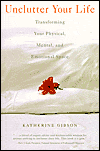 Are you ready to move into a bright clutter-free future? From noise pollution to financial messes and stressful relationships, clutter affects ALL aspects of our lives--not just our physical spaces. If you¹ve tried feng-shui and other organizing techniques and you still can't find clarity in your life, this down-to-earth guide will show you how to evict the clutter culprits and cultivate peace of mind in your home and soul.
Are you ready to move into a bright clutter-free future? From noise pollution to financial messes and stressful relationships, clutter affects ALL aspects of our lives--not just our physical spaces. If you¹ve tried feng-shui and other organizing techniques and you still can't find clarity in your life, this down-to-earth guide will show you how to evict the clutter culprits and cultivate peace of mind in your home and soul.
Info/Order this book. Also available as a Kindle edition.
About the Author
 Katherine Gibson is a member of the Canadian Association of Journalists and the national board of the Periodical Writers Association of Canada. Katherine holds a Master of Education degree and is a recognized educator who offers courses at the University of Victoria. She also provides private coaching to writers. Katherine is a dynamic keynote speaker and seminar leader who will liven up a conference, retreat or special occasion. Katherine is based in Victoria, British Columbia. Visit her website at www.katherinegibson.com
Katherine Gibson is a member of the Canadian Association of Journalists and the national board of the Periodical Writers Association of Canada. Katherine holds a Master of Education degree and is a recognized educator who offers courses at the University of Victoria. She also provides private coaching to writers. Katherine is a dynamic keynote speaker and seminar leader who will liven up a conference, retreat or special occasion. Katherine is based in Victoria, British Columbia. Visit her website at www.katherinegibson.com



















